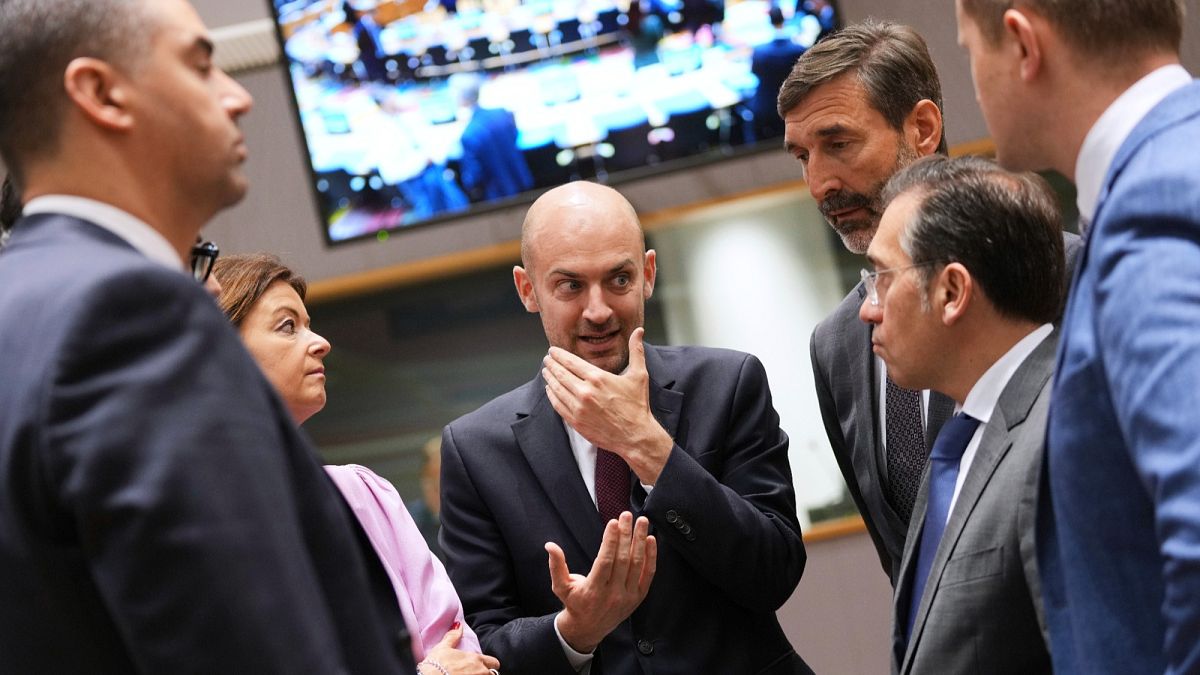

Amid a tapestry of international dynamics, recent developments hint at potential paths towards peace and understanding across various global conflicts. In a series of diplomatic maneuvers, efforts to mediate and reconcile have shaped the current geopolitical landscape, reflecting a hopeful shift toward dialogue and resolution.
In the European arena, discussions continue regarding the European Union’s stance on Israel amid the ongoing tensions in Gaza. European diplomatic circles have confirmed that, for now, sanctions will not be implemented against Israel, as member states seek a constructive dialogue instead. The prominent positions of Germany and Italy, both significant voices within the EU, underscore a preference for continued engagement rather than immediate punitive measures. This decision underscores a commitment to fostering dialogue over discord, exemplifying a preference for understanding and potential collaboration.
This decision follows an earlier attempt to gather support for suspending Israel from the Horizon Europe fund, which did not garner sufficient consensus. Such initiatives are often fraught with complexity, balancing political, humanitarian, and economic considerations. The EU’s approach mirrors a calm yet deliberate strategy, allowing space for further discussions and cooperation, which remains essential in navigating the intricacies of international relations.
On the Korean peninsula, a hopeful gesture emerged as South Korea decided to dismantle the border propaganda speakers that had previously amplified tensions with North Korea. This initiative serves as a gesture of reconciliation, illustrating a departure from past aggressive posturing. The removal of these speakers marks a significant milestone in efforts to bridge the divide between the two Koreas, a reflection of an evolving strategy to engage rather than antagonize.
This action overturns policies set by a previous government aimed at retaliating against provocations from the North, which included the use of balloons carrying propaganda and waste materials directed at the South. With tension reduction as a priority, South Korea’s choice to silence the speakers reflects a broader, mindful approach to fostering peace on the peninsula. It encourages an atmosphere where dialogue might flourish, paving the way for improved relations and stability in the region.
Shifting the focus to Eastern Europe, Russia’s President Vladimir Putin has signaled his readiness to engage in direct talks with Ukraine’s President Volodymyr Zelenskyy. This development comes amidst pressures from the international community, notably from the United States, where President Donald Trump posited an ultimatum aimed at securing a ceasefire. This diplomatic deadline, backed by potential economic consequences through tariffs, illustrates the use of leverage in pursuit of peace.
Putin’s willingness, albeit tentative, to meet with Zelenskyy marks a pivotal moment in the ongoing conflict between Russia and Ukraine. The readiness for dialogue, stemming from both external and internal motivations, provides a glimmer of optimism that constructive conversations might lead to an eventual cessation of hostilities. These talks carry the potential to address the numerous humanitarian and geopolitical challenges that have arisen in the wake of prolonged conflict.
In conclusion, these successive developments across different regions exemplify a fading shift from adversarial stances to more dialogue-driven diplomacy. Whether through the EU’s decision to forego sanctions in favor of engagement, South Korea’s reconciliatory steps towards its northern neighbor, or Russia’s nascent willingness to facilitate direct talks with Ukraine, a mindful emphasis on peaceful resolution appears to be taking precedence. While complex challenges remain, these acts of diplomacy embody a collective aspiration towards global peace and cooperation—a narrative that, with continued perseverance, may steadily transform hope into tangible outcomes.
Source: {link}
